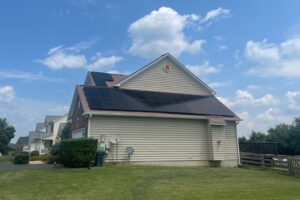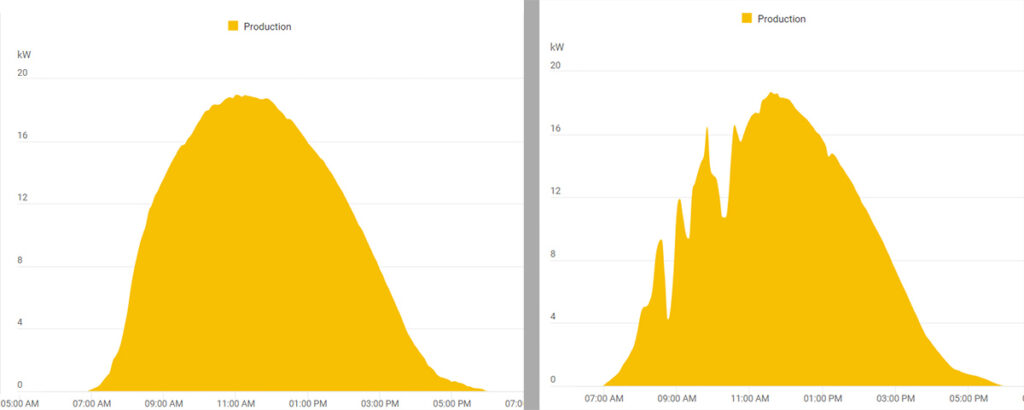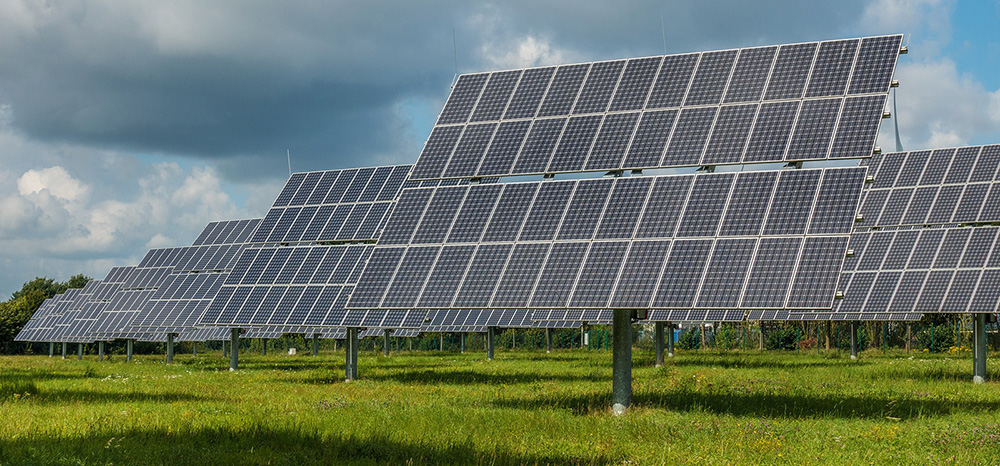Ever drive by solar panels and wonder “what happens when a cloud passes by?” To answer that, we’ll need to understand how solar works, what happens to solar on cloudy days, and if solar is still effective when the weather is bad.
How Solar Works

Solar panels harness sunlight and convert it into electricity through photovoltaic cells. These cells generate electricity when exposed to sunlight. An inverter then converts this type of electricity (direct current) into the type of electricity your home uses and supplies power to your home. Almost all solar systems are still connected to the utility grid, allowing your home to seamlessly use energy from both sources at once.
So what happens on cloudy days?
While solar panels are most effective in direct sunlight, they continue to generate some electricity even on cloudy days. Cloud cover reduces the intensity of sunlight reaching the panels, but they still produce some energy. If your home needs more energy than the solar system can provide, the utility grid supplies the remaining energy. At times when the solar array is producing more energy than your home needs, that excess energy flows onto the utility grid. The excess is recorded, and credited to your utility account– this process is known as net-metering.

Is solar worth it, if we have a lot of rainy days?
Absolutely! Or we should say, it probably is. We, like most Virginia solar installers, offer free solar assessments, which take into account annual weather data, shading, angle, as well as the energy needs of your home. Whether or not solar makes sense for you and your home will ultimately depend on many factors, including roof-space, shading, and budget.
Conclusion
Despite concerns about solar performance on cloudy days, solar energy remains a reliable and sustainable option for homeowners. While power output may fluctuate depending on weather conditions, solar systems are designed to generate electricity throughout the year but don’t need to meet the entire electrical needs of the house at every moment. With utility rates on the rise, many homeowners are turning to solar power to take control of their energy costs and embrace a cleaner, more sustainable future.

